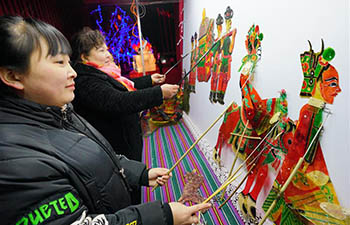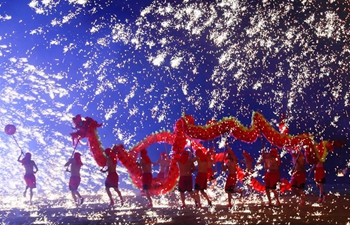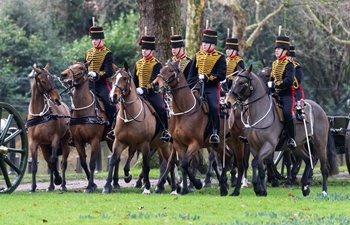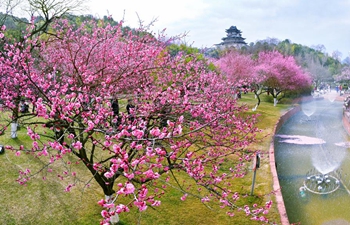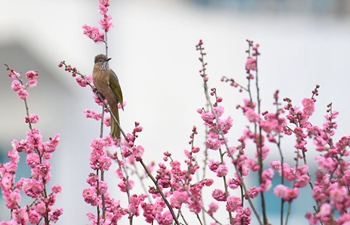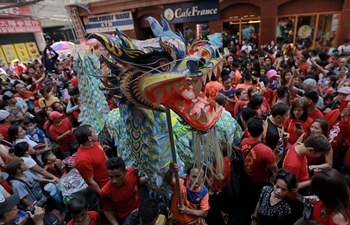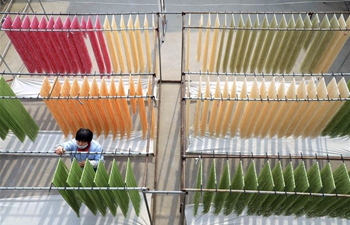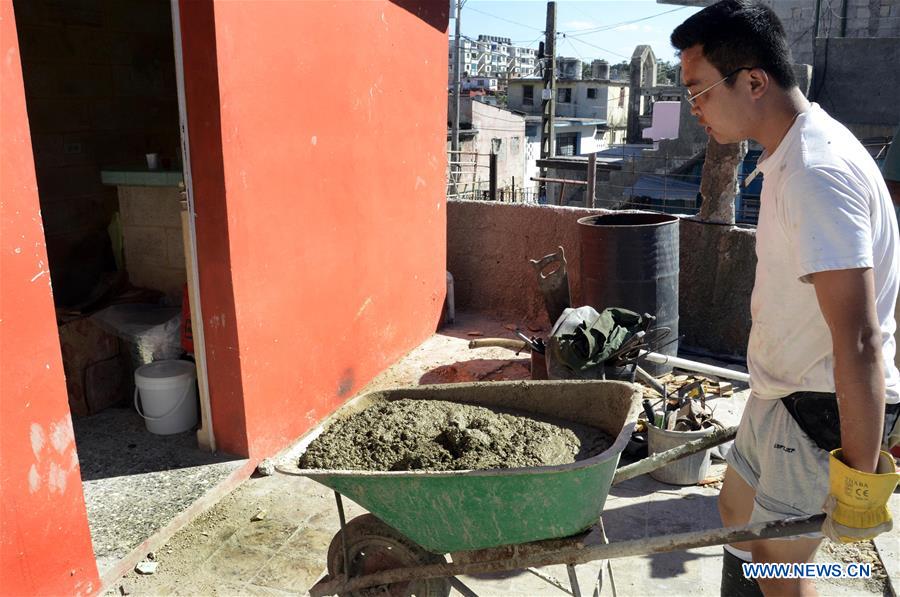 ?
?Photo taken on Feb. 6, 2019 shows Na Weijian, a 29 years old Chinese expatriate, helping in the recovery efforts following a devastating tornado in the southeastern community of Regla, in Havana, Cuba. While millions of Chinese around the world are celebrating the Lunar New Year, Na Weijian is spending the holidays in a very different way. The Chinese expatriate has spent the past week away from the comforts of his Havana home to join the recovery efforts following a devastating tornado that ripped through parts of the Cuban capital on Jan. 27, 2019, which left six people dead, hundreds injured and thousands of homes and buildings totally or partially destroyed. (Xinhua/Joaquin Hernandez)
by Noemi Galban, Raimundo Urrechaga
HAVANA, Feb. 7 (Xinhua) -- While millions of Chinese around the world are celebrating the Lunar New Year, Na Weijian is spending the holidays in a very different way.
The Chinese expatriate has spent the past week away from the comforts of his Havana home to join the recovery efforts following a devastating tornado that ripped through parts of the Cuban capital on Jan. 27, which left six people dead, hundreds injured and thousands of homes and buildings totally or partially destroyed.
In a short time, Na formed a new Cuban family with other members of the Antonio "Nico" Lopez construction brigade working diligently in the southeastern community of Regla to rebuild the battered home of a resident.
"After the tornado, I saw the devastation it caused on television and decided to come here to see if there was something I could do to help. I'm very happy to work alongside Cubans to rebuild the affected areas," Na told Xinhua.
Na, 29, arrived in Cuba in 2012 to study Spanish. He soon fell in love with a Cuban medical student and the two married four years later. They now live in western Havana.
The native of China's northeastern province Heilongjiang has earned the respect and admiration of fellow volunteers and builders who work together with him from sunrise to sunset to rebuild the two-bedroom house that was totally destroyed by the tornado.
During the day Na prepares cement mix, unloads bricks and blocks from trucks, plasters walls or takes on other construction tasks.
"The fellows taught me several techniques and now together we are building a new home. We will definitely rebuild all the houses," he said.
Ignacio Espinosa, a middle-aged Cuban state worker who heads the construction brigade, recalled that when Na arrived at the site, the group was preparing to start rebuilding the toppled home.
"Without knowing us, he asked how he could help and I told him to take the cement wheelbarrow and start loading the mixture," Espinosa said.
They were surprised to see a young man, with no experience at all in construction, quickly acquire the necessary skills and tirelessly work.
His solidarity won over the Cubans' hearts, who even brought him the clothing and footwear needed for heavy duty construction work.
"We were really happy because it is unusual to see a foreigner selflessly help out, particularly after this disaster, which caused severe material damage to the Cuban capital," said Espinosa.
Yasser Caraballo, whose home the brigade is rebuilding, said he was grateful for the help, all the more so because of Na's unexpected contribution.
"I was pleasantly surprised to see a young Chinese in the construction brigade, as he came voluntarily. He has contributed a lot here, working hard in everything and I'm very grateful. He will always have a place in my heart," Caraballo said.
With a shovel in hand, sweat on his forehead and cement mix splattered on his glasses, Na personifies the spirit of solidarity.
"Cuba is a sister country and we will certainly help our brothers rebuild their homes after the devastating tornado," he said.
Whenever Cuba needs help, he will be there to lend a hand, said Na, who has settled down in the Caribbean island state permanently.
In January, in just 20 minutes, Cuba's worst tornado in 80 years damaged over 5,300 homes, totally destroying 505, knocked down power lines and overturned cars.
The Cuban government restored electricity and water supplies and communications in all areas in less than five days.
Five municipalities in southern Havana were affected by the tornado and its 300 km-per-hour winds.
Tornadoes are not common in Cuba. The worst on record hit the western town of Bejucal in December 1940.?





